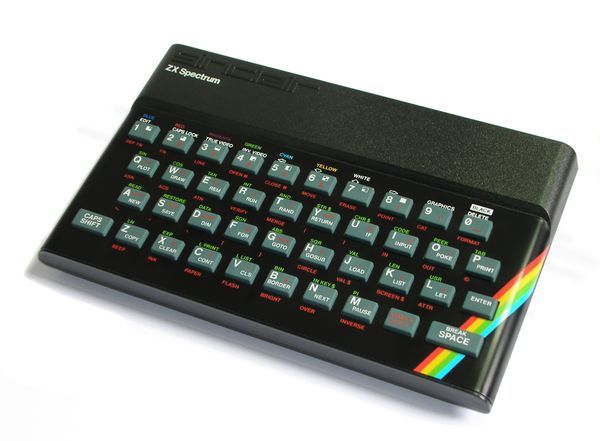Colin Woodcock begins an examination of BASIC on the ZX Spectrum.
Retro Mart: The Basics Of BASIC
However it was that Sir Clive Sinclair intended the ZX Spectrum to be used at the onset, the reality is that it became best known amongst the masses for gaming. There were other uses that you could put your Spectrum to, of course. Word Processors such as Tasword 2 might not have featured the WYSIWYG interfaces taken for granted today, but they didn’t compare too unfavourably with the 'professional' applications of the time. And there were plenty of spreadsheet and database programs around for the Spectrum too.
But the one aspect of owning a Spectrum that can no longer be associated with everyday computer ownership today is programming. With its built-in BASIC, the ease with which the Spectrum could be programmed created something of a revolution in 'bedroom programming’ - not just the oft-noted phenomena of a few youngsters creating games to sell to Ocean for the price of a sports car and a Sonny Crockett jacket (if you believe the advert...), but a much wider number of users who, every now and again, just liked to dip their toe in and dabble.
Talking recently about the Spectrum on a BBC documentary, Sinclair - who, legend has it, was inspired to create the ZX80 after seeing the enjoyment his son got from programming a TRS-80 - remarked, "We realised obviously there would be a games aspect, but the first appeal was to people who wanted to get their hands on one and do some programming themselves. Which they loved doing. I mean, children took to that dramatically. And it's a bit sad today that that really isn't available to them."
It was really the first two years or so of the Spectrum’s life that can perhaps most accurately be referred to as the 'BASIC era'. Many of Sinclair's early own-brand software titles were written in BASIC; magazines of the period leaned heavily on type-ins; and an endless array of BASIC teach-yourselfs jostled for your attention at the bookshop. Although the main focus of Spectrum usage did shift very rapidly to games playing, programming as an essential part of the Spectrum Experience was never entirely lost - Your Sinclair, for example, continued to include its regular 'Program Pitstop' collection of novelty type-ins right up to its "Big Final Issue" in 1993.
Spectrum BASIC was in fact the third incarnation of Sinclair BASIC, following versions created for the Sinclair ZX80 and ZX81 computers. All three were developed by a company called Nine Tiles Software - not actually Sinclair at all; John Grant wrote the ZX80's Integer BASIC in a meagre 4K of memory, and Cambridge mathematician Steven Vickers wrote the BASICs for the ZX81 and then the Spectrum (in 8K and 16K respectively).
What made Sinclair BASIC special? Technically speaking, it wasn't the best on offer - its ability to loop was restricted to FOR...NEXT and GOTO, and its handling of sub-routines was even more, well, basic. Where it shone, however, was in its handling of user errors: immediate feedback via in-built syntax routines - which not only rejected incorrectly formatted statements, but also highlighted where the errors were in your code - made Spectrum BASIC very easy to learn through trial and error.
And colour and sound were accessed through a small number of conceptually very straightforward commands - INK, PAPER, BRIGHT, etc (compare this, for example, to the complicated system of PEEKs, POKEs and CHR$ stuff on the C64 - sorry Shaun) - making graphics and music extremely accessible.
Throw in a very readable BASIC programming manual by Vickers and Robin Bradbeer (the typically well-thumbed condition of copies on eBay is testament to the use that this book got put to) and the end result was a system very much orientated towards persuading the beginner there was a great that deal they - they - were able to achieve with it.
To this day programming remains for many a defining aspect of what having a Spectrum was all about, chiefly because Sinclair BASIC was so successful in this persuasion. This, after all, was what BASIC was supposed to be about. It's an important part of the Spectrum’s legacy We continue by looking at the evolution of BASIC for the Spectrum and how Sinclair BASIC is celebrated today.


 2nd December 2004
2nd December 2004

